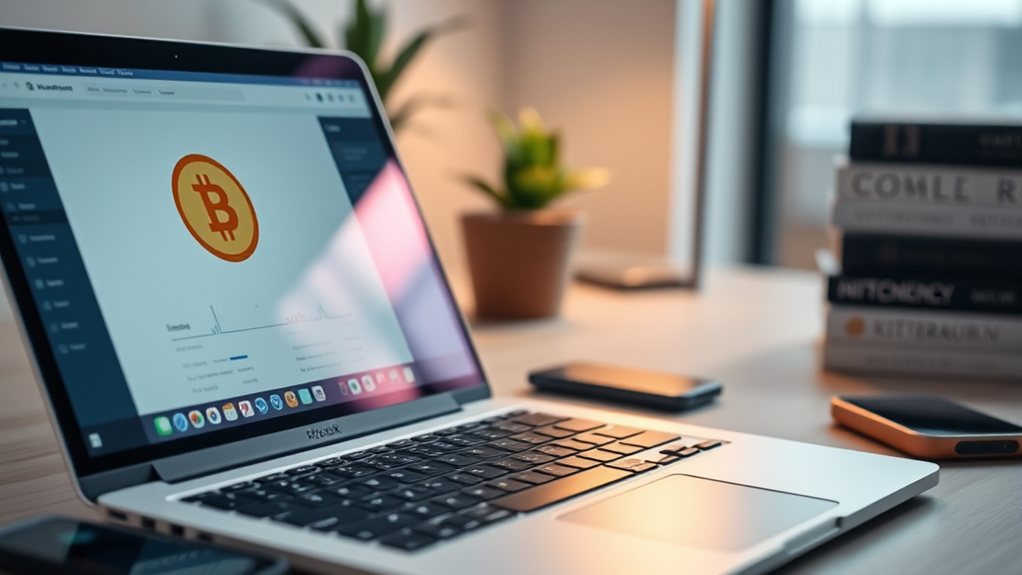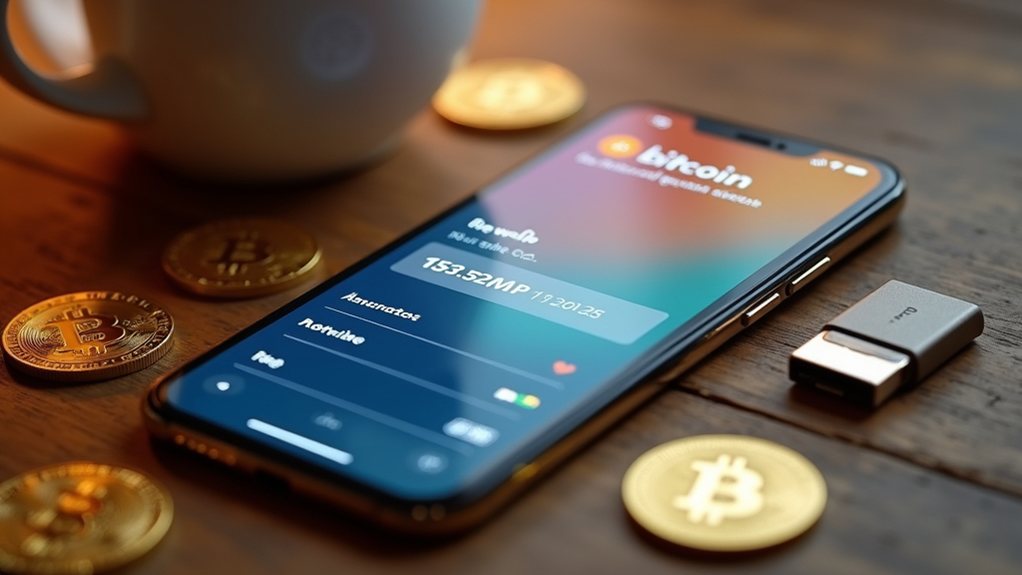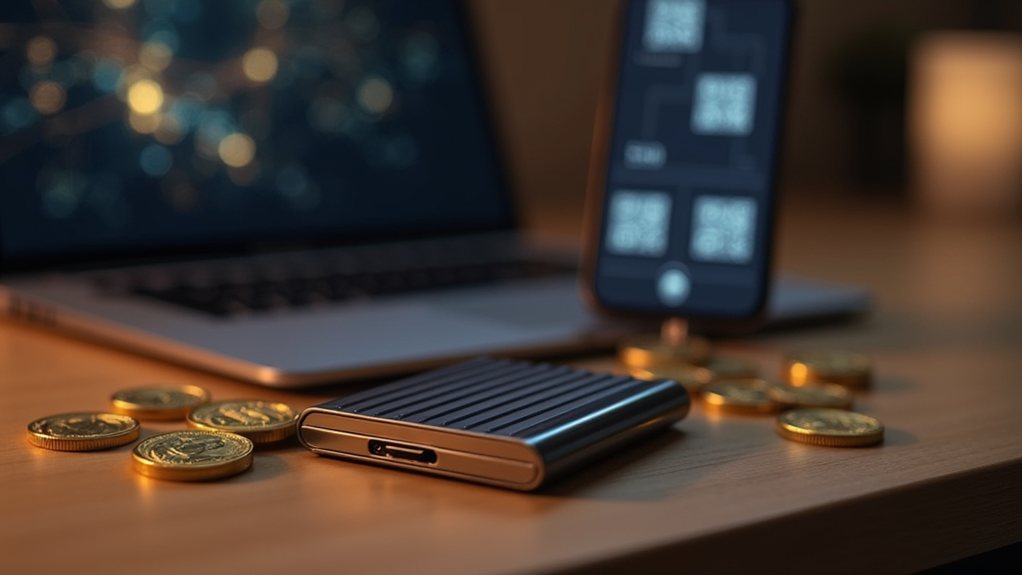To get a Bitcoin wallet, users first choose between software, hardware, or paper wallet types. Software wallets work on phones or computers, while hardware wallets offer better security as physical devices. After selecting a reputable provider, download their app or purchase their device, create strong passwords, and enable two-factor authentication. Each wallet generates unique addresses for receiving funds. The right wallet choice depends on security needs and intended usage.

Many people are turning to Bitcoin wallets as digital currency grows in popularity. These wallets act as digital storage for Bitcoin and come in various types. Software wallets include mobile, desktop, and web-based options that users can access through devices they already own. Hardware wallets are physical devices that store Bitcoin offline, adding an extra layer of security. Some people use paper wallets, which are printed keys and addresses. Multi-signature wallets require multiple approvals for transactions, while brain wallets use memorized passphrases, though experts don't recommend this option.
Finding a reputable wallet provider involves several steps. Users typically research reviews and ratings from other customers. They check if the wallet's code is open-source, which allows security experts to verify its safety. The wallet should have strong encryption and security features to protect funds. Compatibility with Bitcoin and other desired cryptocurrencies is also important. Many users examine the wallet provider's history and reputation before making a choice. The security of your digital assets depends entirely on how well you manage your private keys, which grant access to your cryptocurrency stored on the blockchain.
Researching wallet providers thoroughly ensures your Bitcoin remains secure and accessible through a trusted platform.
The process of getting a Bitcoin wallet starts with downloading and installing the software. Users visit the official website of their chosen wallet provider and select the version that works with their operating system. Security experts recommend verifying the download's authenticity using checksums to prevent malware infections. Following installation instructions carefully helps guarantee proper setup. Regular updates are necessary to maintain security. Implementing robust TLS/SSL encryption protects wallet data during transmission between your device and wallet servers.
Setting up security measures is a critical step when creating a Bitcoin wallet. Users create strong passwords that aren't easy to guess. Many wallets offer two-factor authentication, adding an extra verification step. Some mobile wallets include biometric security features like fingerprint scanning. Users receive a recovery phrase that can restore access if the wallet is lost. This phrase requires secure storage. Popular options like Exodus provide 24/7 customer support to help users with security setup and troubleshooting.
Bitcoin wallets generate unique addresses for receiving funds. These addresses follow specific format standards and serve as the destination for Bitcoin transfers. Many users generate multiple addresses to enhance privacy and organize their finances. Testing a new address with a small amount of Bitcoin helps confirm everything works correctly before larger transfers.
Private keys control access to Bitcoin funds and require careful protection. They should never be shared and are best stored offline in secure locations. Many Bitcoin users employ multiple storage methods for their keys as a precaution. Encrypted backups provide additional security.
Once the wallet is set up, users can add funds through various methods. They can purchase Bitcoin from exchanges, transfer from existing wallets, use peer-to-peer platforms, accept Bitcoin as payment, or mine it with specialized equipment.
Frequently Asked Questions
Is Bitcoin Legal in My Country?
Bitcoin's legality varies worldwide. Over 100 countries allow it while about 10 have banned cryptocurrencies entirely.
To determine if Bitcoin is legal where you are, you'll need to check your specific country's regulations. Nations like the US, Canada, Japan, and most EU countries permit Bitcoin use, while China, Egypt, Morocco, Bolivia, and Algeria have banned it.
Regulations change frequently as governments adapt to cryptocurrency's growth.
How Much Money Do I Need to Start Investing in Bitcoin?
Investors can start with Bitcoin for as little as $2 on some platforms. Coinbase has a $2 minimum while Gemini allows purchases under $1.
Many exchanges accept $5-10 initial investments. There's no universal minimum required to begin. Payment methods and platform choice affect minimum amounts.
Fees impact smaller purchases more markedly. Some experts suggest starting with $50-100 for experimentation or dedicating 1-5% of an investment portfolio to cryptocurrency.
Can I Recover My Bitcoin if I Forget My Wallet Password?
Recovery of Bitcoin from a wallet with a forgotten password depends on available options.
Users can try their recovery phrase, check password managers, or contact wallet providers. Without these, access may be permanently lost.
Professional recovery services exist as a last resort. Experts estimate about 20% of all Bitcoin is currently inaccessible due to lost passwords or recovery phrases.
Cold storage wallets are secure but riskier if credentials are forgotten.
Are Bitcoin Transactions Completely Anonymous?
Bitcoin transactions aren't completely anonymous. They're pseudonymous, meaning they're recorded on a public blockchain using wallet addresses instead of real names.
However, these transactions can be traced and potentially linked to identities. While users can increase privacy through methods like mixing services or using new addresses for each transaction, factors like exchange verification requirements and blockchain analysis tools can compromise anonymity.
What Happens to My Bitcoin Wallet if the Exchange Company Closes?
If an exchange company closes, Bitcoin stored there could become inaccessible.
Customers often become unsecured creditors in bankruptcy proceedings. Unlike bank accounts, crypto assets don't have FDIC insurance. Recovery might be difficult or impossible.
That's why many experts recommend self-custody solutions like hardware wallets, where users control their private keys directly instead of relying on exchanges to hold their funds.














